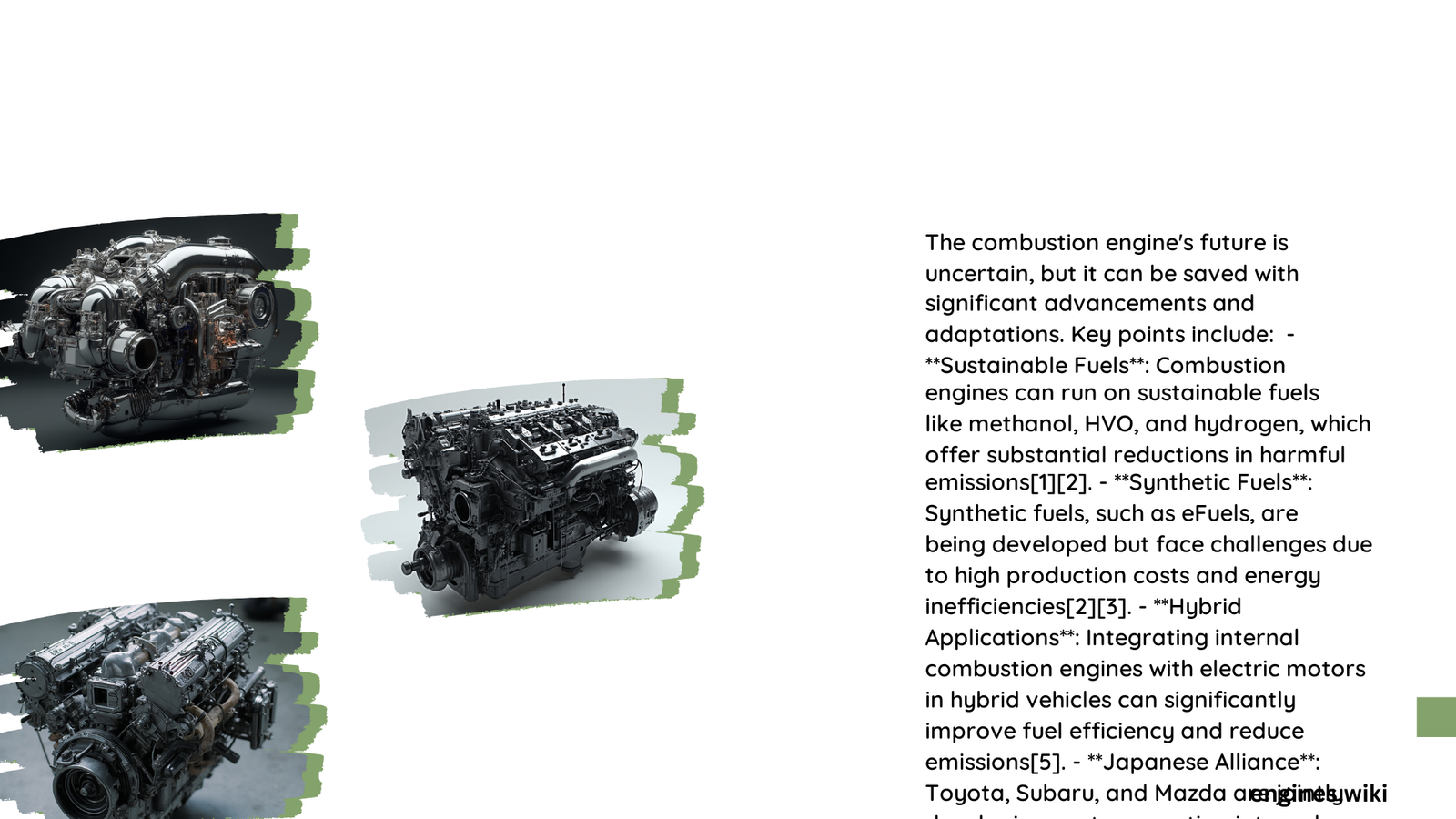The combustion engine stands at a critical crossroads, facing unprecedented challenges from electric vehicles and stringent environmental regulations. However, breakthrough technologies in advanced combustion control, alternative fuels, and emissions reduction strategies suggest that internal combustion engines might not only survive but potentially thrive in a rapidly evolving transportation landscape. This comprehensive exploration reveals the multifaceted approaches that could preserve the combustion engine’s relevance in the coming decades.
Can Advanced Technologies Rescue Combustion Engines?
What Technological Innovations Enhance Engine Performance?
Several groundbreaking technologies are extending the combustion engine’s lifecycle:
- Advanced Combustion Control
- Reduced friction through innovative materials
- Improved valve train systems
-
Smart auxiliary components
-
Thermal Management Strategies
- Enhanced heat dissipation techniques
- Precision temperature regulation
- Lightweight material integration
Performance Improvement Metrics
| Technology | Power Improvement | Fuel Consumption Reduction | Weight Reduction |
|---|---|---|---|
| Advanced Control | 2-9% | 5-7% | 10% |
| Thermal Management | 3-6% | 4-6% | 8-12% |
How Do Emissions Control Systems Work?
Cutting-edge emissions control technologies are crucial for combustion engine sustainability:
- Next-Generation Catalytic Converters
- Faster emissions conversion
- Improved performance across multiple fuel types
-
Reduced harmful particulate emissions
-
Selective Catalytic Reduction (SCR) Systems
- Nitrogen oxide (NOx) reduction
- Enhanced exhaust treatment
- Compliance with stringent environmental standards
Can Alternative Fuels Extend Combustion Engine Life?

What Alternative Fuel Options Exist?
- Hydrogen Combustion
- Zero carbon emissions
- Adaptable engine architecture
-
Developing infrastructure challenges
-
Synthetic Fuels
- Drop-in replacement capabilities
- Similar energy density to traditional fuels
-
Reduced carbon footprint
-
Advanced Biofuels
- Renewable source materials
- Compatible with existing engine designs
- Lower environmental impact
What Are the Economic Considerations?
- Research Investment: Significant funding from automotive manufacturers
- Regulatory Compliance: Meeting increasingly strict emissions standards
- Long-Term Cost-Effectiveness: Potential for reduced operational expenses
What Does the Future Hold for Combustion Engines?
Can Combustion Engines Compete with Electric Vehicles?
The future isn’t about complete replacement but strategic adaptation:
- Hybrid technologies
- Incremental efficiency improvements
- Targeted performance enhancements
Projected Market Transformation
By 2035, combustion engines will likely:
– Utilize predominantly renewable fuels
– Incorporate advanced electrification
– Maintain relevance in specific transportation sectors
Conclusion: A Nuanced Path Forward
The combustion engine’s survival depends on continuous innovation, adaptability, and a holistic approach to technological development. While challenges remain significant, the potential for transformation is promising.
Key Takeaways
- Technological innovations offer hope
- Alternative fuels provide new opportunities
- Strategic adaptation is crucial
Reference:
– Global Automotive Research Reports
– Sustainable Transportation Initiatives
– Advanced Engine Technology Consortium
